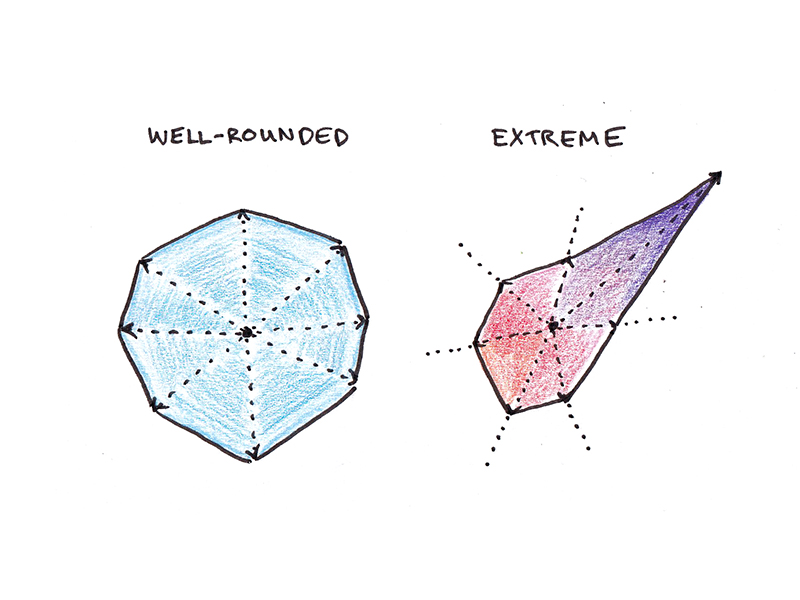The world of advice-giving is populated by outliers.
When we want money advice, we look to Mr. Money Mustache, who retired at thirty. Or Warren Buffett, whose investment skill has earned him over $144 billion.
When we want fitness advice, we look to Olympians, famous bodybuilders or ultraendurance athletes.
For dating advice, we look to the most charismatic or beautiful. For career advice, to CEOs and Nobel laureates. For spiritual advice, to the monks and gurus who have abandoned all material desires.
Overall, this is a decent strategy. Being the best is more stringent than meeting the middle. By focusing on outliers, you eliminate a lot of medicore advice.
But there’s a drawback to this focus on outliers. Very rarely is a successful person’s outsized accomplishments in one domain matched with equivalent success in others:
- Extreme professional success is often achieved by being an absent parent or spouse.
- Extreme athletic success directs time and money away from one’s day job.
- Extreme frugality makes it hard to recognize opportunities when spending more can lead to better nonfinancial outcomes.
Life Rewards the Circle, Not the Spike
For most domains of life, being well-rounded is far more useful than being an extreme outlier. Pretty much all areas of life show a classic diminishing returns curve for investment. The person who doesn’t exercise at all benefits more from adding an extra 30 minutes of movement to their day than an elite athlete will.
The only exception to this is within certain professions, where true mastery of your specialty can reap outsize rewards. But even here, there’s diminishing returns on career success as it applies to your life more broadly. Being the world’s best surgeon won’t bring much comfort to your personal life if your spouse leaves you and your kids won’t talk to you because you only cared about work for your entire career.
If your goal is personal satisfaction, not becoming a best-selling advice-giver, then your life benefits the more it looks like a circle—with a decent level in all your foundations—rather than a spike:

The Best and the Rest
My motto for dealing with the overrepresentation of outlier success is simple:
Learn from the best, but fit it in with the rest.
In other words, you want to study the very best in a field. By all means, read the ultramarathoner when you lace up your shoes, study the world’s top investing expert and listen to the person who has read every scientific study ever conducted on your topic.
But, after you’ve done that, you need to integrate that advice into the rest of your life. Find the advice with the best ratio of rewards-to-efforts, and ensure you stick with it. Don’t worry about achieving greatness in everything you do—but be content that you’ve moved yourself to a level where basic problems won’t trip you up.
_ _ _
My 12-month program, Foundations, is opening Monday, September 23rd. In this course, we’re going to treat each month as a mini-project, both to extract the highest-value expert advice for each foundation, and then to convert those into stable keystone habits that will endure for years to come.

 I'm a Wall Street Journal bestselling author, podcast host, computer programmer and an avid reader. Since 2006, I've published weekly essays on this website to help people like you learn and think better. My work has been featured in The New York Times, BBC, TEDx, Pocket, Business Insider and more. I don't promise I have all the answers, just a place to start.
I'm a Wall Street Journal bestselling author, podcast host, computer programmer and an avid reader. Since 2006, I've published weekly essays on this website to help people like you learn and think better. My work has been featured in The New York Times, BBC, TEDx, Pocket, Business Insider and more. I don't promise I have all the answers, just a place to start.